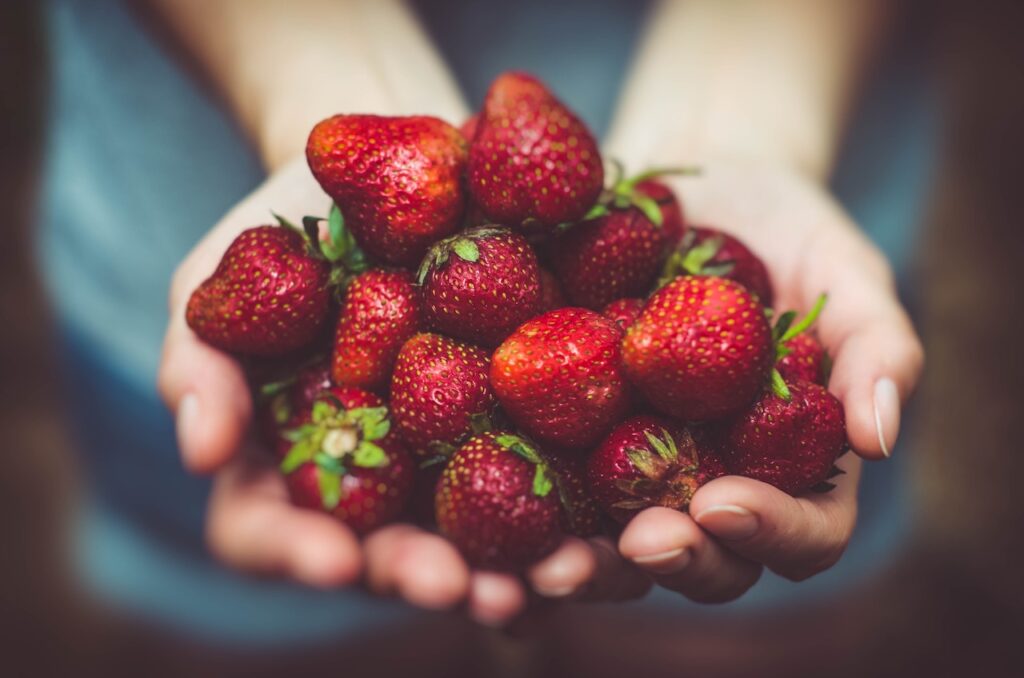
So, your child wants to be a vegetarian? Guess what? A LOT of kids go through this phase. Whether they watch a documentary that makes them question their diet, or their friends are doing it, it’s normal. Some kids decide that nixing the meat is what they want forever, some decide it was worth a try, but ready to have that burger.
BLUF (Bottom Line Up Front): If your child wants to try vegetarian eating, let them. Be aware of their unique needs as an athlete and help them plan their meals and snacks.
Here’s what you need to be watching for when your child’s diet suddenly changes.
Fueling Young Vegetarian Athletes
When you have an athlete, there are some things you need to watch out for if your child suddenly decides they don’t want to eat meat. It’s not all chips and sour patch kids (because, yes, those are vegetarian foods).
Have a conversation with them about which type of vegetarian eating pattern they would like to follow. Here are the most common:
Lacto-Ovo Vegetarian: No meat, but still allow dairy and eggs in the diet.
Pescatarian: The only meat allowed is fish (no beef or poultry). Typically eggs and dairy are still allowed.
Vegan: No animal foods whatsoever. No meat, dairy, eggs, or honey.
Calories/Protein
This is number one to look out for. Make sure they are eating enough. Be mindful that your child is not overly restricting their food for fear that they might accidentally eat meat.
Don’t count calories, but pay attention. Pay more attention to hunger and fullness from your athlete.
It’s a myth that you can’t get enough protein on a vegetarian diet, but if your athlete is hungry all the time, protein might be the issue. Keep protein-rich foods available that fit into a vegetarian diet:
- Greek yogurt
- Chocolate milk
- Hummus
- Edamame
- Cashews, peanuts, pistachios
- Cheese sticks
- Baked crunchy chickpeas

Nutrients of Concern
Nutrients of concern are specific nutrients that the medical community have identified has those that teens are not getting enough of.
These are:
- Calcium
- Iron
- Vitamin D
- Vitamin B12
Calcium
Nutritionists and medical professionals preach about the importance of calcium for healthy bones and teeth. That is a super important reason to make sure your kids are getting enough calcium. Did you know that calcium is also important for heart health, muscle function, and nerve transmission?
Get calcium from the following foods:
- Milk
- Yogurt
- Cheese
- Orange Juice with added calcium
- Almonds
- Tofu
Iron
Iron is a big one to watch out for, especially if you notice that your athlete is overly fatigued all the time, getting sick more often, or having dizzy spells.
Males and females are both prone to low iron, but females are especially vulnerable, especially if they are exercising a lot, have heavy periods, or are eating a vegetarian/vegan diet — iron from meat is better absorbed by the body than iron from plants.
Here are some vegetarian sources of iron that you should make sure are in the diet:
- Fortified breakfast cereal — check the label to see if it contains extra iron
- Lentils
- Beans (white beans, kidney beans, chickpeas)
- Dark Chocolate
- Pumpkin seeds
- Dried apricots, plums, raisins
Vitamin D
Vitamin D will forever be a concern. Of course, our bodies synthesize vitamin D from the sun, but how many of you are slathering sunscreen on your kid before swim practice, soccer practice, or their baseball game? Yeah, we all do it, so we are limiting the amount of vitamin D our bodies can make. No big deal, let’s get it from our diet.
Vitamin D helps the body absorb calcium, reduces inflammation, and helps your immune system.
There are not a lot of foods that naturally contain vitamin D – especially for vegetarians. If your child is eating fish, you’re in luck — salmon, tuna, and other white fish contain vitamin D, so have 1-2 servings of fish each week.
Other dietary sources of vitamin D are:
- Fortified orange juice
- Fortified cereals
- Mushrooms (look on the package to make sure your mushrooms have vitamin D)
- Milk (Milk in the United States is fortified with vitamin D)
- Plant based milk (check the label to see if vitamin D is added)
- Eggs
Vitamin B12
Vitamin B12 is not typically something that kids are deficient in, so it’s not a nutrient of concern for all kids. Here’s the deal, if your child is a vegan, you probably need to have a conversation with your child’s pediatrician and let them know. If your child is still eating dairy, eggs, and/or fish — they are getting B12.
Vitamin B12 is only found in animal foods and some vegan foods, like nutritional yeast — but I doubt your budding athlete is chowing down on nutritional yeast during the day.
Vitamin B12 deficiency symptoms can feel a lot like iron deficiency — tired, cold, pale skin.
For vegetarians, get vitamin B12 from the following sources:
- Nutritional yeast
- Fortified cereal
- Milk
- Yogurt
- Cheese
- Eggs
Be Mindful of Your Child’s Diet
If you are not on the vegetarian/vegan train, it’s okay. Try your best to help your child plan out healthy meals and snacks to keep them fueled and healthy. Make the bulk of your meals full of whole grains, fruits, vegetables, beans, nuts, dairy, and eggs. We could all use a little more plant foods in our diet.


